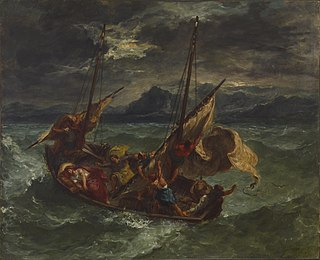Related Research Articles

Matthew 9:5 is a verse in the ninth chapter of the Gospel of Matthew in the New Testament.

Matthew 9:6 is the sixth verse in the ninth chapter of the Gospel of Matthew in the New Testament.
Matthew 9:13 is a verse in the ninth chapter of the Gospel of Matthew in the New Testament.
Matthew 9:14 is a verse in the ninth chapter of the Gospel of Matthew in the New Testament.
Matthew 11:24 is the 24th verse in the eleventh chapter of the Gospel of Matthew in the New Testament.
Matthew 9:34 is a verse in the ninth chapter of the Gospel of Matthew in the New Testament.
Matthew 11:25 is the 25th verse in the eleventh chapter of the Gospel of Matthew in the New Testament.
Matthew 15:13 is a verse in the fifteenth chapter of the Gospel of Matthew in the New Testament.

Matthew 8:26 is a verse in the eighth chapter of the Gospel of Matthew in the New Testament.

Matthew 8:27 is a verse in the eighth chapter of the Gospel of Matthew in the New Testament.

Matthew 8:29 is the 29th verse in the eighth chapter of the Gospel of Matthew in the New Testament.
Matthew 12:22 is the 22nd verse in the twelfth chapter of the Gospel of Matthew in the New Testament.
Matthew 12:26 is the 26th verse in the twelfth chapter of the Gospel of Matthew in the New Testament.
Matthew 12:27 is the 27th verse in the twelfth chapter of the Gospel of Matthew in the New Testament.
Matthew 12:33 is the 33rd verse in the twelfth chapter of the Gospel of Matthew in the New Testament.

Matthew 14:28 is a verse in the fourteenth chapter of the Gospel of Matthew in the New Testament.

John 1:46 is the 46th verse in the first chapter of the Gospel of John in the New Testament of the Christian Bible.

Matthew 11:2-3 are the second and third verses in the eleventh chapter of the Gospel of Matthew in the New Testament.
Matthew 11:4-6 is a set of verses in the eleventh chapter of the Gospel of Matthew in the New Testament.

Matthew 15:3-6 is a set of verses in the fifteenth chapter of the Gospel of Matthew in the New Testament.
References
- ↑ Cornelius Cornelii a Lapide; Thomas Wimberly Mossman The great commentary of Cornelius à Lapide, London: J. Hodges, 1889-1896.
- ↑ Exell, Joseph S.; Spence-Jones, Henry Donald Maurice (Editors). On "Matthew 12". In: The Pulpit Commentary . 23 volumes. First publication: 1890. Accessed 24 April 2019.
- 1 2 3 "Catena aurea: commentary on the four Gospels, collected out of the works of the Fathers: Volume 6, St. John. Oxford: Parker, 1874. Thomas Aquinas".
 This article incorporates text from this source, which is in the public domain .
This article incorporates text from this source, which is in the public domain .